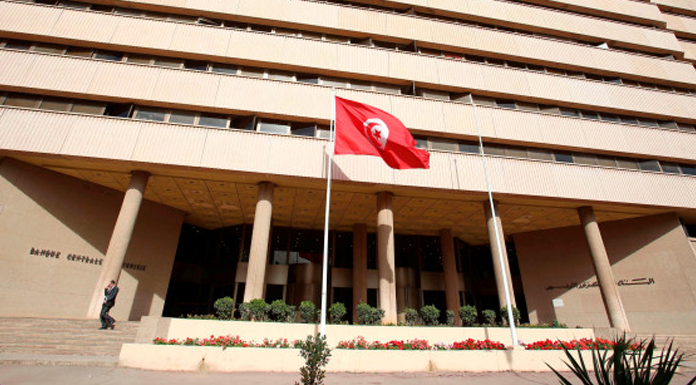Tunisian lawmakers are preparing a law that would remove the exclusivity of the central bank in setting the benchmark interest rate, thus ending the bank’s monetary policy independence.
The bill suggests that the central bank should set the interest rate after the approval of the government.
President Kais Saied has often taken aim at the central bank which opposed his plan to directly fund the state budget.
The short-termism of the government in dealing with the crisis has often contrasted with the concern of the central bank for ensuring price stability amid an unprecedented economic crisis in the country.
President Saied also wants the bank to abstain from signing deals with international oversight bodies without his approval.
The public finances, of what was once an Arab Spring success story, are in disarray after President Said rejected an IMF deal calling for subsidies’ cuts and a reform of public finances.
The $1.9 billion lifeline loan promised by the IMF and conditioned on reforms is now obsolete and needs to be updated in light of the deterioration of Tunisia’s public finances.
The crackdown on the independence of the Tunisian central bank is seen by critics as a continuation of the president’s crackdown on the state institution.
The president has in 2021 replaced the parliamentary system with a presidential one that arrogates almost all government authority to himself.
He also brought the judiciary under his control and sent opponents to jail, including journalists.
Under Saied, the democratic achievements have been overturned along with the economy, with Tunisia becoming one of the countries most at risk of default.
The lack of access to foreign funding led to more borrowing from domestic banks, resulting in disruption of imports and queues due to shortage of essential goods.
With one of the world’s highest wage bills in terms of percentage to GDP, Tunisia under autocratic president Kais Saied is unwilling to implement painful reforms that include cutting subsidies.
As its public debt soars to $37 billion or 80% of the country’s GDP with a budget deficit of about 10%, Tunisia is on the brink of default. Morgan Stanley ranked the north African country among the top three likely defaulters.



